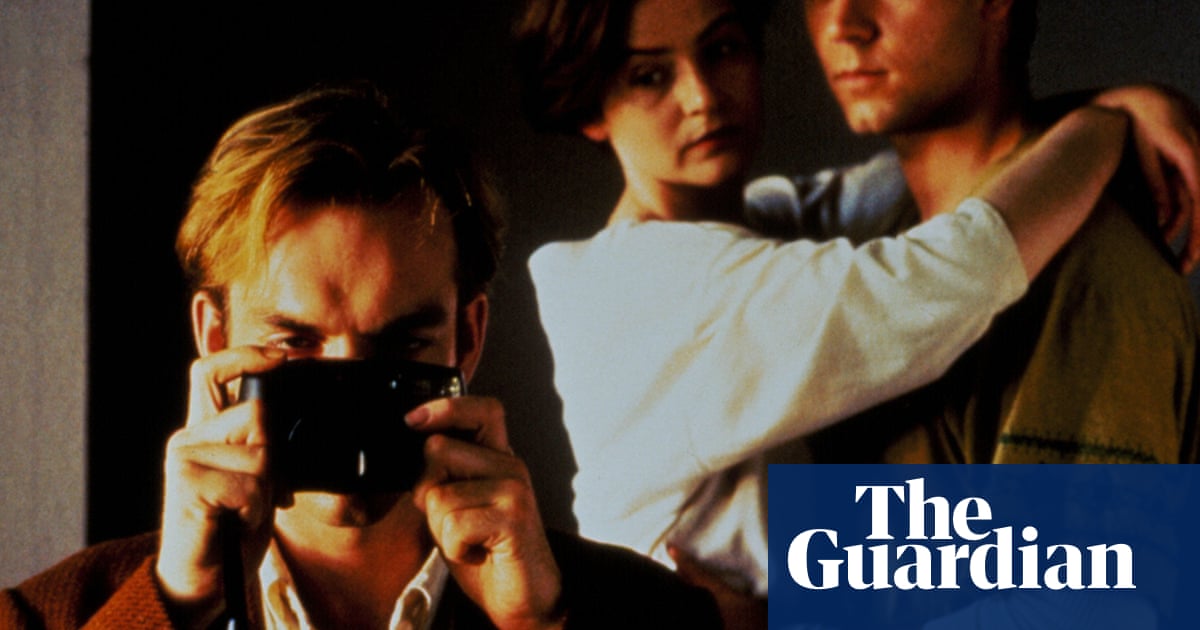
Proof is a film that constantly flouts expectations. Darkly humorous yet sensitive, intelligent without ever becoming po-faced, it’s that exceedingly rare kind of movie that has something for everyone, while firmly maintaining its own distinct perspective. It’s a shame almost no one has seen it.
Martin (Hugo Weaving) has been blind since birth. He takes photographs to record the experiences that he himself cannot witness, but doesn’t trust anyone enough to truthfully describe them back to him – least of all his obsessive and vindictive maid Cecilia (Geneviève Picot). That is until an unfortunate accident introduces him to hapless dishwasher Andy (Russell Crowe), an honest sort despite his self-described “untrustworthy face”. Martin “hires” Andy to describe his photographs, and as their arrangement blossoms into a genuine friendship, a jealous Cecilia makes drastic moves to keep her place in Martin’s world.
Much of Proof’s power comes from writer-director Jocelyn Moorehouse’s whip-smart and watertight screenplay, honed over four years while she worked as a television script editor. The balance of power see-saws constantly between the central trio, with strong characterisation and clever setups ensuring the countless surprises and subversions along the way feel earned.
Such great writing inevitably serves the cast; this 1991 film helped lay the groundwork for two illustrious Hollywood careers. Weaving is excellent as Martin, fully inhabiting his blindness without delving into showboating or caricature. There is a youthful vulnerability to his performance, revealing itself in a nasal edge to his voice. It’s also refreshing to see Crowe give a performance free of the hyper-macho gravitas that would inflect his later performances. His affable, wet-behind-the-ears take on Andy succeeds through the pure sincerity with which he asks a drive-in attendee: “What sort of food do you reckon would be good for blind people?”
However, the film belongs to the only cast member who didn’t go on to become an A-lister. Picot brings both a worldliness and a sly deadpan to Cecilia that recalls femme fatales of yore, while also contrasting her co-stars’ naivete. There is a deep yearning for connection behind her glib cruelty, which has spiralled into pathetic obsession.
The cast is equally served by Moorehouse’s elegant direction and expansive visual vocabulary. Numerous sight gags form a strong vein of visual wit that runs through the movie, and cinematographer Martin McGrath brings forth the sensuality inherent in the screenplay. Delicate closeups of hands and eyes are cast in noirish shadow and the grey glint of an overcast Melbourne sky.
Melbourne itself has rarely been as authentically captured on film. From the bluestone alleyways behind Lygon Street’s Zia Theresa restaurant to the gilded glint of the Arts Centre lobby, the film captures the picturesque elements of the city that can so often be glossed over.
Proof swept the 1991 Australian Film Institute awards, taking home prizes for best film, director, producer, screenplay and editor, as well as best actor and supporting actor for Weaving and Crowe respectively. The film even found its way to Steven Spielberg, who offered Moorehouse the director’s chair for the then upcoming adaptation of Whitney Otto’s book How to Make an American Quilt, released in 1995.
Unfortunately Proof slipped through the cracks of the Australian public consciousness, its darling critical reputation unable to keep it from rising above a cult level of success. Thankfully, a Kickstarter campaign led by film critic and national treasure Margaret Pomeranz provided the film with a restoration that premiered at the Melbourne international film festival in 2016, rescuing the film from near-obscurity. That restoration, alongside Moorehouse’s triumphant return to the director’s chair with audience favourite The Dressmaker in 2015, signalled a reevaluation of Proof’s place in the Australian cinematic landscape.
In many ways, Proof’s reputation mirrors Moorehouse’s, the gifts of both film and film-maker have been underrated by audiences for far too long. However, even if it had stood as the only thing Moorehouse ever directed, Proof would live up to its title as irrefutable evidence of a truly singular Australian talent.












